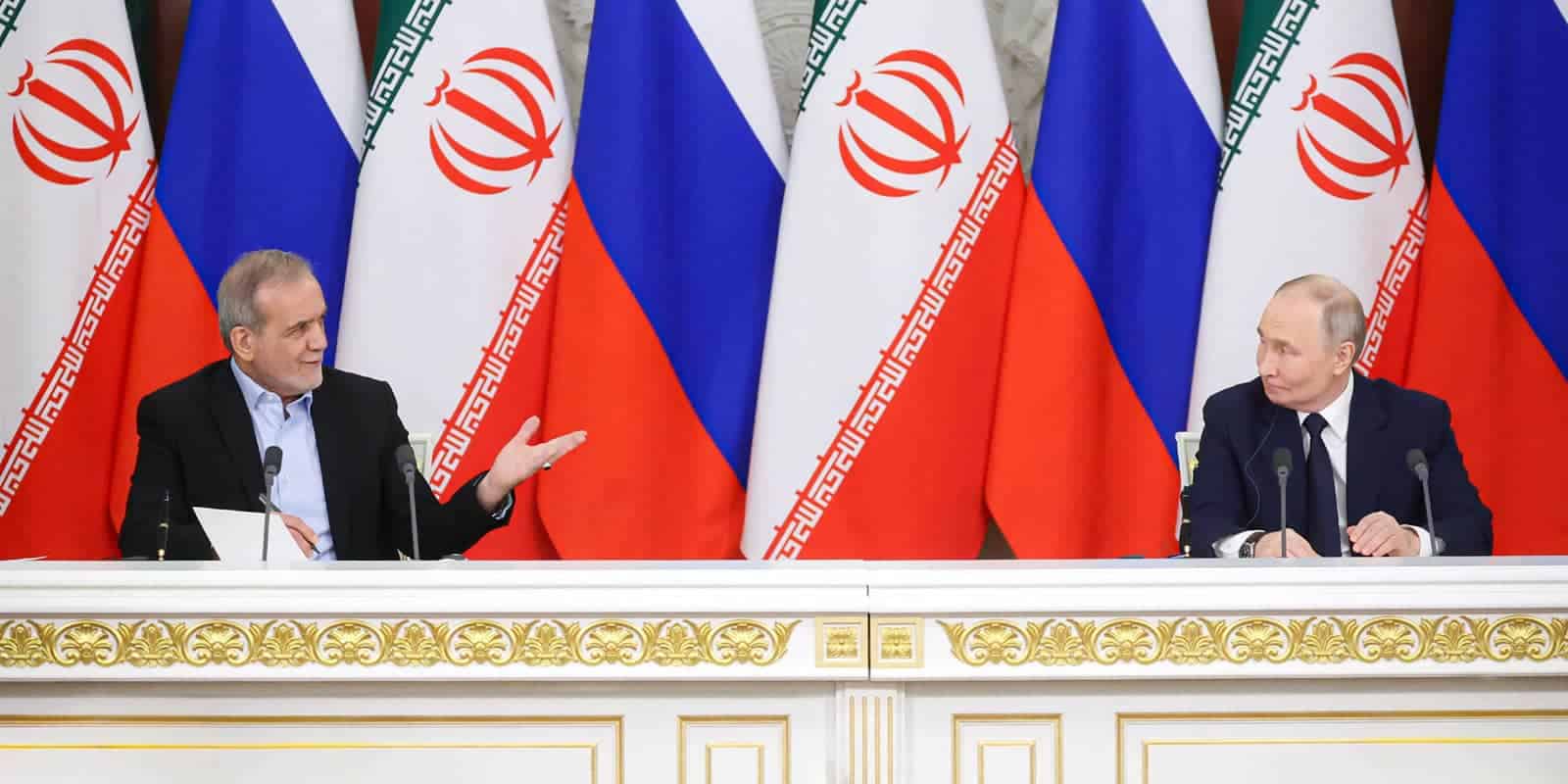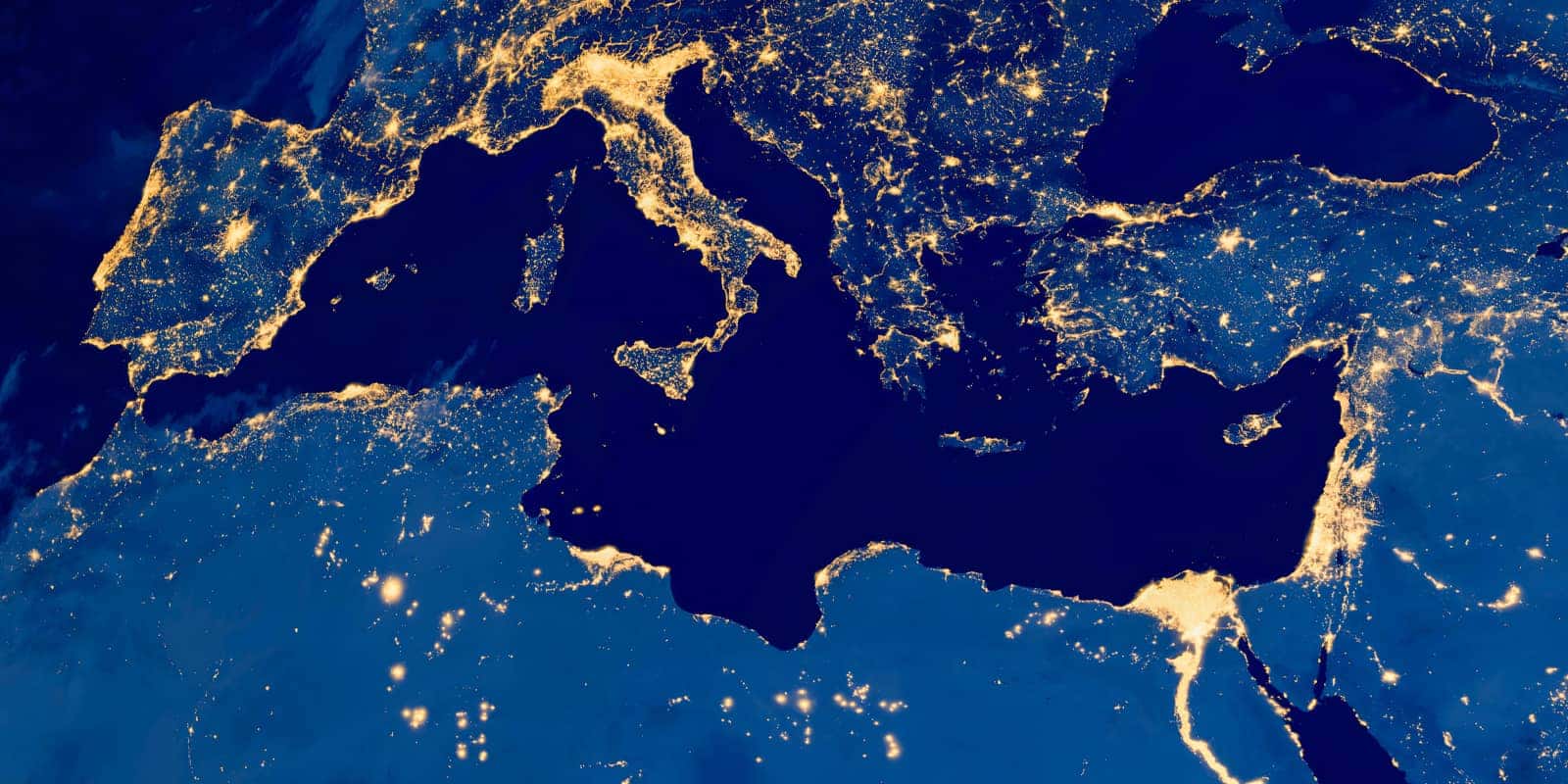During and after the 12-day Iran–Israel war, Iranian propaganda levelled harsh accusations against Azerbaijan, directly blaming its northern neighbor for collaborating with Israel. Some Iranian political commentators including officials and persons affiliated with the IRGC threatened Baku and called for decisive action against Azerbaijan. As the war erupted at a time of relative warming in Azerbaijani-Iranian relations, Tehran has sought to avoid open hostility at the official level, instead projecting goodwill. The result has been an incongruent and contradictory policy approach.
Iranian propaganda against Azerbaijan has focused on two main accusations: that Azerbaijan supported Israel’s attack and that Baku failed to condemn either the Israeli or American strikes on Iran.
One of Iran’s foremost Caucasus and Central Asia experts, Ehsan Movahedian at Allameh Tabataba’i University, claimed in an interview with the Armenian news agency that Israeli drones and F-35 fighter jets entered northern Iran via Azerbaijani airspace. He asserted that Iranian air defense systems detected several drones approaching from the direction of Azerbaijan.
Media outlets affiliated with the Islamic Revolutionary Guard Corps (IRGC) made similar claims. A Telegram channel linked to the IRGC reported that Israeli drones and aircraft flew through Azerbaijani airspace, and issued a direct threat to Baku, “The Aliyev regime’s collaboration with the Zionists cannot be forgotten or forgiven. Aliyev and the ruling clique in Baku must pay for their crimes against the Iranian people.”
Other media outlets have resurfaced the claim that there are Israeli military bases on Azerbaijani territory, asserting that they are as legitimate a target as Israel itself. Azerbaijan has repeatedly denied the presence of Israeli bases on its territory and Iran has not offered definitive proof to support its allegations.
The conservative publication Vatan Emrooz openly called for the activation of the “Axis of Resistance” in response to the American strikes on Iran’s nuclear facilities. It emphasized the need to mobilize pro-Iranian forces, not only in Azerbaijan, but also in Pakistan and Afghanistan, as well as Houthi forces in Yemen.
The Telegram channel Akhbar-e Syria ( Syrian news—a popular telegram channel with more than 20,000 followers that often puts out IRGC viewpoints) went so far as to issue death threats against Azerbaijani President Ilham Aliyev, “The funding of terrorist activity [against Iran] comes from the Baku regime and Ilham Aliyev personally. For this betrayal and crime, the time of his death has come.”
Pro-Russian writer Reza Shaybani also claimed that Israeli Harop strike drones, with a range of 1,000 kilometers, could have reached Tehran and Rasht only from the coastal regions of Azerbaijan. He vowed to take revenge on the “Zionist mercenaries.” Shaybani presents himself as a dentist and writer from Tabriz who studied in Moscow. However, his writing focuses on propaganda against Azerbaijan.
Such threats were not confined to political commentators and the media. Hojjatoleslam Abdolrahim Najafgolizadeh Saraei, the representative of the Supreme Leader in the IRGC’s territorial unit in East Azerbaijan Province, stated that after Iran’s strike on a U.S. base in Qatar, the Islamic Republic is prepared to target American bases in other countries, including Azerbaijan. He also claimed that Israel has built an airbase in Azerbaijan.
Hojjatoleslam Hassan Ameli, the Supreme Leader’s representative in Ardabil Province, claimed the United States planned to destroy Iran’s military and scientific infrastructure, but failed. He also stated that “some neighboring countries”—an explicit reference to Azerbaijan—had not condemned the strike on Iran because they were aware of the plan in advance and hoped for its success.
Against this backdrop, the Iranian conservative newspaper Kayhan, which is affiliated with the office of the Supreme Leader, suggested that the explosion at of pyrotechnic materials at a film studio in Azerbaijan’s capital may have been linked to Azerbaijani-Israeli cooperation, implying it was an act of sabotage intended to punish Baku.
Yet one can easily notice subtle details in how Iranian media portray the situation. The official position of Iran’s Ministry of Foreign Affairs has remained relatively restrained. Foreign Ministry spokesperson Esmail Baghaei stated that while Azerbaijan denies any involvement in military actions against Iran, the Iranian side continues to investigate.
Meanwhile, at the height of this propaganda campaign, Iranian President Masoud Pezeshkian visited Azerbaijan on July 4. The visit was remarkable in and of itself. Pezeshkian had previously traveled to the neighboring country in April and now returned to attend the Economic Cooperation Organization (ECO) summit held in the city of Khankendi—liberated in 2023 from Armenian separatists who received covert support, among others, from Tehran.
Although the Iranian president was well aware of how Armenian public opinion would view his visit, he disregarded the potential backlash. His presence at a major event in that city clearly signaled Tehran’s recognition of Azerbaijan’s sovereignty over the Karabakh region, regardless of what Armenia—despite its continued status as a strategic partner of Iran—might think.
Pezeshkian not only participated in the summit but also met with Azerbaijani President Ilham Aliyev. During their meeting, Pezeshkian expressed readiness to actively expand bilateral cooperation—an approach that stands in stark contrast to the harsh propaganda targeting Azerbaijan.
At first glance, it may seem paradoxical that Iran is simultaneously conducting a fervent anti-Azerbaijani propaganda campaign while its senior officials speak of cooperation. One might assume that President Masoud Pezeshkian does not reflect the views of the Supreme Leader, whose word is law in Iran. However, it is also clear that Pezeshkian would not have traveled to Khankendi without Ayatollah Ali Khamenei’s approval. This suggests that the Supreme Leader currently favors a de-escalation of tensions in relations with Azerbaijan.
This duality should neither surprise nor mislead. Primarily, anti-Azerbaijani propaganda aims to shape public opinion within Iran. By pointing to a neighboring country as one of the main culprits behind its undeniable defeat in the 12-day war, the Iranian authorities seek to deflect attention from their own failures and issue threats toward Azerbaijan—even though it is fully aware that translating such rhetoric into action would be extremely difficult.
As Turan Research Center Director Joseph Epstein noted, Iran seeks to surround itself with an “imaginary ring of fire” to show that it wasn’t just Israel that brought the regime to its knees but rather a broader coalition of countries including Azerbaijan.
At the same time, this rhetoric lays the groundwork for potential repression of Iran’s ethnic minorities, should the regime choose that path. For instance, if the Azerbaijani minority—one of the largest and most oppressed in the country—voices its dissent more forcefully, the Iranian authorities can use the manufactured hysteria to justify violent measures as a response to “foreign influence.”
Pezeshkian’s Interview with Tucker Carlson
At present, however, this propaganda has little real impact on foreign policy. The Iranian population, for its part, has grown accustomed to such erratic zigzags from the regime. Harsh rhetoric against Azerbaijan—rarely followed by meaningful action, aside from isolated attempts to organize terrorist attacks or recruit Azerbaijanis for sabotage in third countries—leaves little impression on the Iranian people.
On July 7, Massoud Pezeshkian gave an interview to U.S. conservative talk show host Tucker Carlson, where he stated that “Iran is not seeking war, but it will defend itself.” Iranian media reactions to that interview varied between reformist and hard-line outlets. Reformist media quoted Pezeshkian as saying that if Trump truly wants peace, he should “take steps toward it, not war” and that Iran has no problem with negotiations and is ready to “return to that path. Yet, even the moderate Arman-e Melli said that there are conditions for a return to negotiations, among them a guarantee that the U.S. will not allow Israel to attack Iran again during talks.
In contrast, hardline media criticized the president for even suggesting that Iran was ready to return to the negotiating table, given that the U.S. had bombed Iran. Some hard-liners condemned Pezeshkian for saying during the interview that Iran would continue cooperation with the International Atomic Energy Agency (IAEA) despite Carlson asking about the IAEA’s “espionage.” Pezeshkian downplayed the slogan “Death to America,” telling Carlson that Iran never attempted to kill Trump and that the phrase was meant to signify “death to crimes, death to killing, and death to carnage.” This effort at moderation upset some hard-liners. Meanwhile, anti-regime social media users circulated video footage of Khamenei explaining that the slogan meant death to Trump and all U.S. officials.
Repeated Behavioral Patterns in Iranian Foreign Policy
A pattern of intentional obfuscation through contradictory statements characterizes Iran’s foreign policy and is evident even in relatively minor interactions, such as its dealings with Azerbaijan. Pezeshkian’s interview with Carlson, alongside comments by Iranian officials on potential talks with the United States reflect this tendency: Iranian politicians show willingness to negotiate but immediately attach conditions for returning to talks. Iranian Speaking at the recent BRICS summit in Brazil, Iranian Foreign Minister Abbas Araghchi described the U.S.-Israeli attacks on Iran’s nuclear infrastructure as a “fatal blow” to the international non-proliferation regime.
Khamenei, of course, approves of all Pezeshkian’s moves, whereas he leaves all the others sufficient room for interpretation. Iran’s current language stresses moderation and readiness for talks, but the regime’s conditions make any resumption of talks in the immediate term impossible. For Khamenei, any consent to unconditional direct talks with the U.S. would be tantamount to surrender, which he cannot afford. Yet, his abstention from outright incitement also reflects fear of a renewed military confrontation.
Pezeshkian’s interview with Carlson may be part of a more sophisticated Iranian strategy. It attempts to target Trump in his backyard and influence his audience. The regime aims to cast doubt on the legitimacy of Trump’s policies toward Iran and to win over an antisemitic media influencer through Pezeshkian. Essentially, it’s a new effort by the government to replay its classic game of “bad cop, good cop.” In other words, the regime would like to see more voices in the West argue that Iran is divided radicals and moderates and therefore military force should be abandoned in favor of engagement with the so-called moderates. In reality, however, Supreme Leader Khamenei has the final say on all matter in Iran.
The regime’s military weakness constrains it to adopt a seemingly moderate stance abroad toward America—although never towards Israel. At the same time, however, it is escalating inflammatory rhetoric and domestic repression.
JISS Policy Papers are published through the generosity of the Greg Rosshandler Family.















Israel’s Veteran Peace Partners: The Role of Egypt and Jordan in the Context of Trump’s Gaza Plan